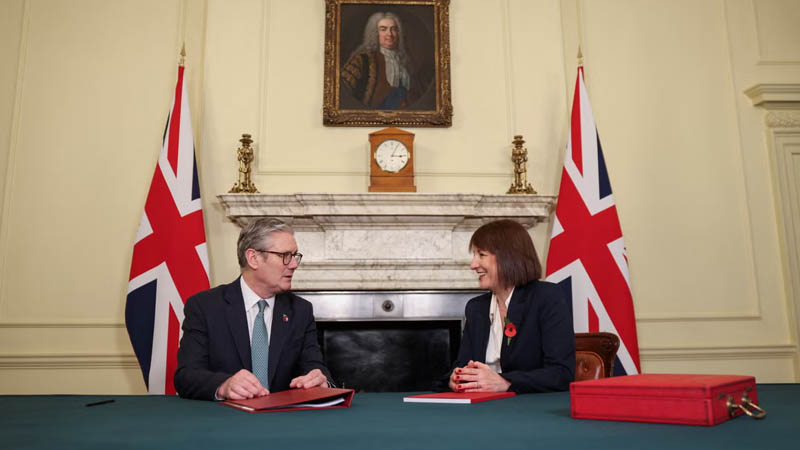
Reeves Unveils Game-Changing £160 Billion Plan to Supercharge UK Businesses
Share0Sir Keir Starmer and Rachel Reeves are set to meet with leading executives from some of Britain’s major companies on Tuesday as part of their ongoing efforts to stimulate economic growth, reported by the Independent. The Labor leaders aim to unlock a portion of the £160 billion surplus held in corporate defined-benefit pension schemes by relaxing the regulations governing how businesses manage and invest these funds.
During the meeting, which will include representatives from prominent firms such as Tesco, BT, Unilever, and Lloyds Bank, Starmer and Reeves will emphasize their commitment to supporting the private sector. Their goal is to attract more investment into the UK by providing businesses with greater flexibility in handling their pension assets.
Government estimates reveal that approximately 3,750 corporate defined-benefit pension schemes—about 75%—are currently in surplus, holding £160 billion more than the pension payments they owe their members upon retirement. Under existing regulations, less than £70 billion of this surplus can be returned to companies. With total assets in corporate defined-benefit pension schemes reaching £1.2 trillion, the proposed changes represent a significant shift in pension fund management.
This initiative is part of a broader strategy to boost the UK’s economic growth amidst mounting pressure on the government’s handling of the economy. Rachel Reeves’ first six months in government have been particularly challenging, marked by sluggish growth figures, rising government borrowing costs, and controversial decisions that have led to calls for her resignation.
Adding to the economic uncertainty, potential tariffs from the Trump administration have prompted the government to seek growth opportunities through increased private investment. The Chancellor’s plans to ease pension fund regulations are an extension of pension reforms initiated by the previous government, now being advanced further by the Labor Party.
One of the key aspects of these reforms includes the mandatory merger of local government pension schemes, which collectively hold £400 billion in assets. Additionally, the meeting on Tuesday will announce further changes to pension rules designed to increase the availability of funds for investment within the UK.
Ahead of the meeting, Sir Keir Starmer stated, “To achieve the change our country needs requires nothing short of rewiring the economy. It needs creative reform, the removal of hurdles and unrelenting focus. Whether it’s how public services are run, regulation or pension rules, my Government will not accept the status quo.” Rachel Reeves echoed this sentiment, adding, “Businesses and Government are united on growth being the top priority,” and emphasized that she is “fighting every day to tear down the biggest barriers to growth, taking on regulators, planning processes and opposition to this urgent mission.”
Tuesday’s discussions come after a period of economic difficulty for the government, characterized by stagnant growth and increasing borrowing costs that threaten plans to improve public services. Concurrently, businesses have voiced growing pessimism about their future prospects, especially following the recent Budget that raised employers’ national insurance contributions—an issue both Starmer and Reeves aim to address with business leaders.
The Chancellor is scheduled to deliver a major speech on Wednesday, expected to focus on growth strategies, including further reforms to the planning system, deregulation, and the enhancement of trade and investment. Additionally, she is likely to address the Government’s policy on constructing a third runway at Heathrow Airport, a contentious issue with strong opinions both for and against its potential to drive economic growth.
Jonathan Lipkin of the Investment Association commented on the proposals, stating that with “the right guardrails in place,” the changes “could help channel more funding into the economy by enabling schemes to invest more widely and take on greater risk, while allowing for members to receive an uplift to their pension benefits.”
Unlocking investment from surplus pension funds has been a priority for both the current Chancellor and her predecessor, Jeremy Hunt, who identified the limited appetite among pension funds for investing in UK assets as a significant barrier to growth. By enabling greater investment flexibility, the government hopes to make more funds available for infrastructure projects and support British businesses, thereby fostering a more robust and dynamic economy.
